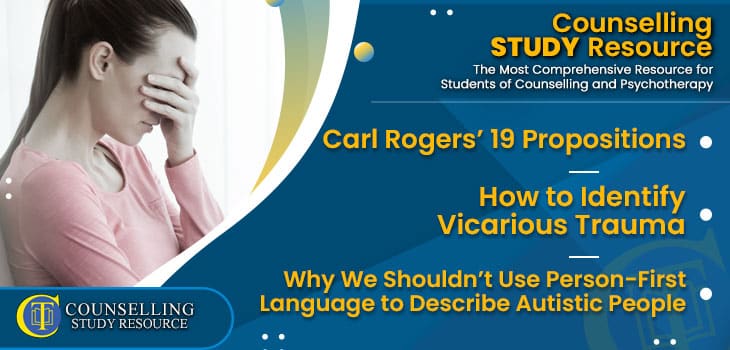See Counselling Skills Used in Real Sessions by Qualified Therapist
Real Sessions – Real Presentations – Real Skills
Gain the competence and confidence to use counselling techniques effectively!

In Episode 226 of the Counselling Tutor Podcast, your hosts Rory Lees-Oakes and Ken Kelly are back with this week’s three topics:
Carl Rogers’ 19 Propositions
In this section, Rory and Ken discuss some observations on the 19 Propositions of Carl Rogers:

Real Sessions – Real Presentations – Real Skills
Gain the competence and confidence to use counselling techniques effectively!
Within your practice, it is crucial to look after yourself and prevent a possible burnout. One thing to be cautious of in order to avoid this is vicarious trauma.
The key points of this discussion on recognising vicarious trauma are as follows:

On-demand access to a rich lecture library covering theory, skills, and professional development for counselling students—Mapped to the UK awarding body criteria
“The Student Library has been BRILLIANT, I can’t recommend it enough!
It has been a lifeline in helping me prepare for practice and my first clients. If you’re considering it, go-for-it, it’s absolutely worth it!”
Kelly – Graduated and now in practice.
In part one of an interview with Quinn Dexter of the YouTube channel ‘Autistamatic’, Rory discusses why, against what is widely taught, we shouldn’t use person-first language to describe autistic people.
The main points of this interview include:
Carl Rogers’ 19 Propositions

Get on-demand Certified CPD that is implementable in your practice
